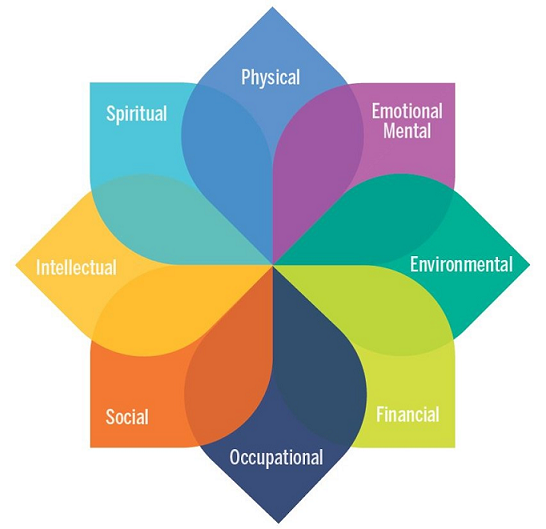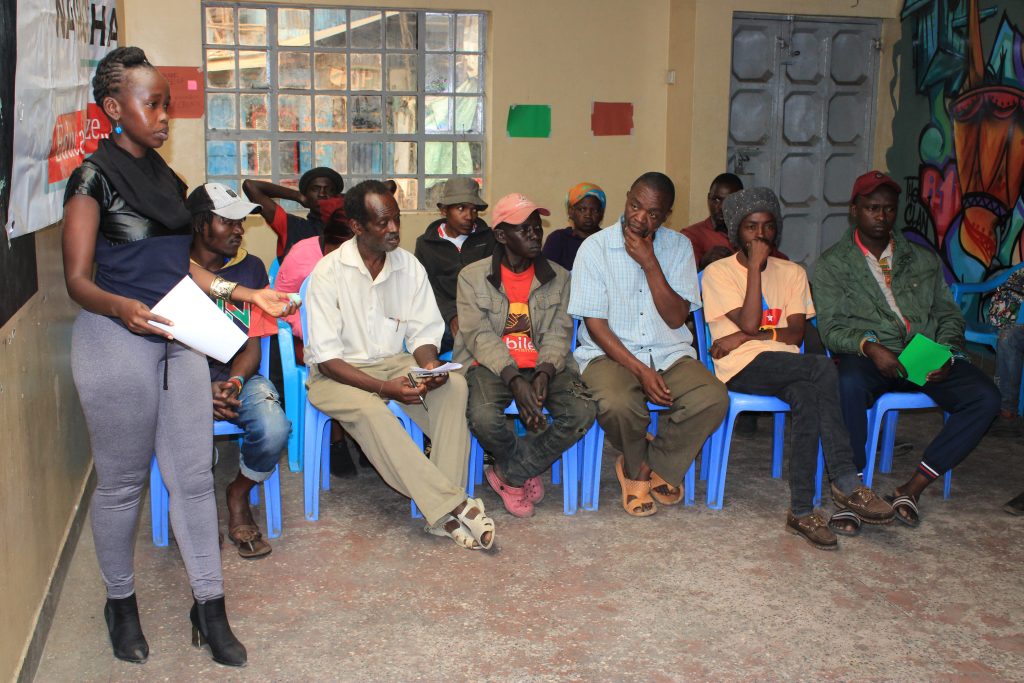A powerful transformational force of our society emerges through Civic Education on Mental Health.
The educational approach toward emotional health in communities trains citizens to understand their duty to support psychological well-being functions while fulfilling their societal responsibilities.
The education program merges conventional civic education lessons about government along with law systems and civic duties next to mental health education for understanding these health issues.
The integrated method enables citizens to gain awareness about mental health problems and acquire capabilities to help develop solutions.
People who receive civic education learn important abilities which include both effective communication skills and critical thinking and active community involvement.
The necessary abilities provided through civic education enable people to defend psychological health programs better and influence national policies and build surroundings which support people dealing with emotional illness.
The foundation of civic education regarding mental well-being rests on understanding that emotional health affects the public domain.
The following essential relationships exist between civic education and mental health:
Public Awareness and Stigma Reduction:
Through civic education people can learn accurate emotional health facts that eliminate false information about this field. Knowledge acquisition about emotional health enables citizens to fight against the discriminatory attitudes towards those who suffer from mental illnesses.
The Mental Health Foundation alongside other organizations leads educational initiatives that show how education serves to eliminate barriers while stimulating empathy.
Policy Advocacy and Community Engagement:
Well-informed citizens develop the capability to create psychological health policy changes which operate at both state and national and local levels.
The education programs teach citizens several methods to both contact lawmakers and join public discussions while casting ballots on choices which impact local health initiatives. Legislative modification efforts for available mental wellness services demand such empowerment as a fundamental aspect.
Social Responsibility and Inclusive Communities:
The teaching of citizenship generates social accountability among people who actively work toward building diverse neighbourhoods. People who understand societal factors affecting mental health because of poverty and discrimination will actively support programs targeted at these issues root causes.
Civic Education on Emotional Health has vital importance in society due to multiple interconnected reasons that promote societal well-being and development.

1. Empowerment Through Knowledge
Through education about mental health citizens develop an ability to detect initial signs of mental distress while also gaining expertise to access help and offer assistance to their community members.
The acquisition of knowledge enables individuals to choose their health decisions wisely along with taking actions to resolve emotional health problems within their neighbourhood.
The understanding of mental health essentials by members of a community helps initiate neighborhood support networks while they practice wellness initiatives and educational outreach programs.
The improvement of community knowledge through civic education enables communities to gain self-advocacy abilities and become empowered.
2. Enhancing Community Resilience
The educational program of Civic Education on Mental Health helps communities develop stronger support networks which results in increased resilience among citizens. People who know about psychological health challenges become better equipped to show sympathy and create an environment that simplifies discussion about mental health issues.
Websites such as StudyCreek implements community outreach together with support networks as part of emotional health education while monitoring these activities for their impact on community resilience development.
Mental health support programs play a crucial defensive role because they make assistance available at all times to minimize the detrimental effects of mental health emergencies.
3. Reducing Economic Burdens
A decline in psychological health triggers major economic problems by causing employee unavailability and rising health service expenses as well as job departure from the labor market.
Through civic education society can build preventive emotional health strategies to spend less money on healthcare while developing an economy with greater stability.
The World Health Organization has demonstrated through its research that mental health promotion investments produce high economic returns because they decrease healthcare costs.
The support provided by the population for mental health investments results from citizens learning about civics through education which produces lasting economic advantages.
4. Driving Social and Political Change
Matters of civic education act as the foundation which supports democratic nations. The effective promotion of emotional well-being information to citizens enables them to develop better advocacy skills for change. The civic education movement should work to gain policy changes which will improve psychological health funding and expand health programs and combat discriminatory practices that degrade emotional wellness.
Through civic education NAMI (National Alliance on Mental Illness) mobilized citizens to support essential psychological wellness legislation thus proving what education enables people to accomplish meaningful societal improvements.
A successful promotion of Civic Education that prioritizes emotional well-being demands coordinated participation between schools and community organizations together with government agencies and private-sector establishments. Several approaches exist for implementation as follows:

The fundamental role of schools is to deliver civic education. When schools include psychological health information in their teaching frameworks educators enable students to develop both emotional awareness and empathy at an early stage. This can be achieved through:
Psychologists will conduct workshops along with seminars that show the value of well-being to students.
Teachers should create discussion platforms that examine psychological problems and stigma levels along with effective coping techniques.
The interactive learning concept involves using role-play activities with group projects to help students understand and empathize with each other better.
Local administrations together with nonprofit organizations should establish community-based workshops while holding public sessions to discuss psychological problems where:
The public should receive information about recognizing psychological illnesses indicators as well as its symptoms.
The organization should make emotional health services available to the public through established resources.
The initiative should equip local citizens to start advocating about emotional well-being matters. For example, many communities now offer free or low-cost emotio nalhealth screenings and support groups.
External links to resources like the Substance Abuse and Mental Health Services Administration provide further guidance on setting up such initiatives.
Digital technology enables the most extensive possibility for distributing civic education content. Digital education provides quick access for large groups of people through social media campaigns together with webinars and online courses.
StudyCreek serves as an educational platform which delivers important tools and assets to spread knowledge about mental health services alongside civic engagement methods.
Through digital platforms citizens can engage with psychologists through virtual town hall meetings and Q&A sessions to foster meaningful dialogue.

The educational content about citizenship should advance from traditional classroom boundaries to include advocacy work for public policies. Community mental well-being initiatives gain greater success when ordinary people take part in city government through both town hall meetings and upcoming elections. Psychological health reform support can be amplified by using tools which combine online petitions with social media advocacy and community-wide organization activities.
Change.org serves as an external platform preserving evidence about how public initiatives become policies through grassroots advocacy. A society progresses toward better health through educating people about their commitments and entitlements.

Free heath screening
Civic educators working together with healthcare providers enables them to develop robust community health initiatives. The partnerships make sure citizens get both correct data along with practical methods to control their mental well-being. Initiatives may include:
Joint public health seminars.
Health fairs organize educational seminars along with free screening procedures for the public.
Research initiatives that jointly evaluate how civic education affects community health standards.
When health providers join forces with community members they ensure that residents receive vital information while simultaneously establishing better relationships between healthcare professionals and their community.
Research demonstrates that Civic Education on Mental Health programs generate effective outcomes across numerous areas worldwide. A pilot program in a significant city added emotional wellness lessons to academic subject matter while teaming up with neighborhood healthcare facilities. The program reported:
A 30% reduction in stigma among students.
Improved access to emotional health resources.
Increased community participation in mental well-being advocacy events.
The utilization of digital media tools to gather citizens successfully achieved engagement across various social networks. A dedicated website with educational resources joined interactive webinars together with live Q&A sessions to form the core components of this campaign for mental health education.
Through this initiative public awareness grew greatly and new mental health policies acquired substantial public backing.
The mentioned case studies demonstrate how civic education affects significant mental health transformations. Citizen awareness leads to change agents who drive improved community health conditions alongside better quality of life.
With further expenditures in educational endeavours, partnership development, and technological improvement, civic education on mental health has a bright future. Civic education must be included into everyday life in more societies that recognise the significance of mental health.
Policymakers, educators, and healthcare professionals must collaborate in the following ways to improve civic education on mental health:
Increase the number of emotional wellness education initiatives.
Use digital tools to reach a wider audience.
Lawmakers must advocate for legislation that supports the coverage of mental health services.
Since mental wellness requires teamwork, your organisation should urge everyone to take it seriously.
Putting a strong emphasis on civic education growth will result in communities that are knowledgeable and capable of improving their society.
A vital investment in our future as a society is civic education on mental well-being. We can improve public policy, lessen stigma, and improve everyone’s quality of life by raising awareness, educating people, and encouraging active civic participation.
When everyone has access to the information and tools they need to prosper financially and psychologically, the society is said to be healthy.
Check out StudyCreek’s resources for more information on instructional tactics and community involvement. Visit the National Institute of Mental Health and the World Health Organisation to learn more about mental health.
We can create a future where Civic Education on Psychological Health paves the path for enduring social and economic development by working together to educate the public and take informed civic action.
1. What is Mental Wellness Civic Education?
In order to enable communities to support and advocate for mental health programs, Civic Education on Mental Health combines traditional civic education with mental health knowledge.
2. What role does civic education have in emotional wellness?
It encourages legislative changes that increase access to mental health resources, lowers stigma, and raises public awareness.
3. How can people participate?
People can actively contribute to the development of healthy communities by taking part in community workshops, advocating online, and endorsing laws that encourage mental health.
4. How can I find out more?
For further in-depth information, visit reliable websites such as StudyCreek’s educational resources and the World Health Organisation.
Delivering a high-quality product at a reasonable price is not enough anymore.
That’s why we have developed 5 beneficial guarantees that will make your experience with our service enjoyable, easy, and safe.
You have to be 100% sure of the quality of your product to give a money-back guarantee. This describes us perfectly. Make sure that this guarantee is totally transparent.
Read moreEach paper is composed from scratch, according to your instructions. It is then checked by our plagiarism-detection software. There is no gap where plagiarism could squeeze in.
Read moreThanks to our free revisions, there is no way for you to be unsatisfied. We will work on your paper until you are completely happy with the result.
Read moreYour email is safe, as we store it according to international data protection rules. Your bank details are secure, as we use only reliable payment systems.
Read moreBy sending us your money, you buy the service we provide. Check out our terms and conditions if you prefer business talks to be laid out in official language.
Read more